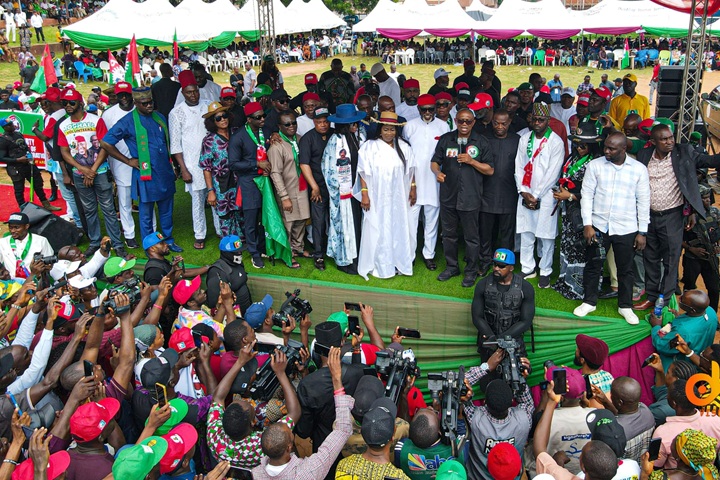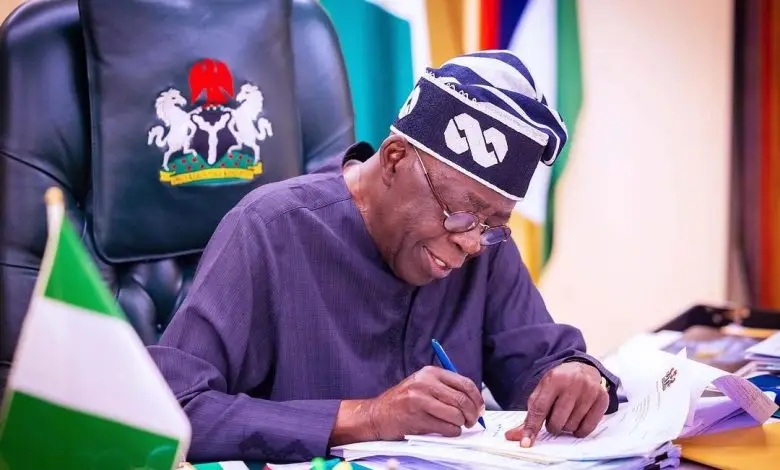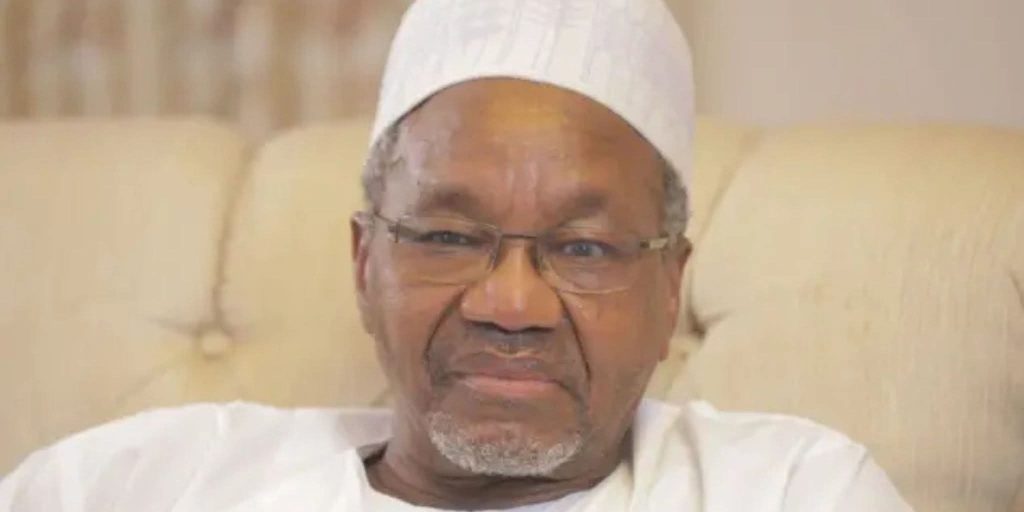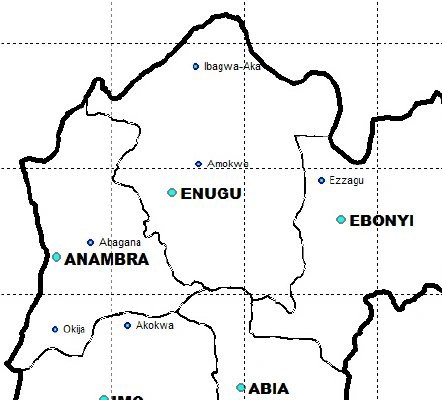Featured
EFCC recovers trillions, secures record convictions
DDM News

The Federal Government recovered 223 automobiles, 975 real estate assets, shares, treasury bills, solid minerals, and cryptocurrency in 2024.
According to Diaspora digital media (DDM), Lagos recorded the highest convictions as the Economic and Financial Crimes Commission (EFCC) secured 4,111 convictions throughout the year.
The agency is spearheading President Bola Tinubu’s anti-corruption program, demonstrating increased efforts in tackling financial crimes.
Despite these gains, civil society organizations stress the need for transparency in asset recovery and management.
Human rights lawyer Femi Falana urged stronger actions against corrupt officials and their supporters.
Journalist Chido Onumah called for fast-tracking the whistleblower protection bill to enhance accountability in governance.
Nigeria improved slightly on Transparency International’s 2024 Corruption Perceptions Index (CPI), yet corruption remains deeply entrenched.
EFCC recovered approximately N1 trillion in cash and assets, marking its largest seizure since its inception in 2003.
The recovered amount surpasses the combined 2024 budgets of Yobe, Gombe, Ebonyi, Nasarawa, and Ekiti states.
At a minimum wage of N70,000, the recovered funds could pay 1.2 million civil servants for a year.
Alternatively, 25 million Nigerians could benefit if the funds subsidized food items like rice.
Nigeria scored 26 out of 100 on the 2024 CPI, improving from 25 in 2023.
The country’s global ranking moved from 145th to 140th among 180 nations.
While this progress signals improvement, corruption remains a major challenge to national development.
High-profile Nigerians and Politically Exposed Persons (PEPs) continue to loot public funds.
Many citizens suffer from economic hardship despite the government’s promise to renew hope.
EFCC Chairman Olanipekun Olukoyede recalled rejecting N500 million during his mother’s burial in 2019.
Government officials, including ministers and directors, sent substantial financial gifts to him.
Olukoyede’s experience highlights the culture of financial inducement in governance.
EFCC’s 2024 report, submitted to President Tinubu, details the agency’s achievements.
The agency secured 4,111 convictions from 5,083 cases filed in court.
This marks the highest number of convictions in EFCC’s history.
Throughout 2024, EFCC investigated 12,928 cases from 15,724 petitions received.
Advance Fee Fraud (419), money laundering, and cybercrime dominated the agency’s investigations.
Rising unemployment, greed, and weak regulations fuel cybercrime and financial fraud.
Cybercriminals now use artificial intelligence, deepfakes, and sophisticated phishing schemes.
Lagos led in petitions with 3,224 cases, followed by the FCT with 1,576.
Other high-reporting zones included Kaduna (1,456), Enugu (1,362), Kano (1,270), and Port Harcourt (1,185).
Monetary recoveries included N364.6 billion, $214.5 million, £54,318, and €31,265.
Forfeited assets included 223 automobiles, five barges, and 975 real estate properties.
Additional recoveries included 40.8 million shares, treasury bills, and 70 tons of solid minerals.
Crypto recoveries included 13.37 Bitcoin worth $572,992 and 5.97 Ethereum worth $13,353.
USDT recoveries totaled 1,002.55 tokens valued at $1,002.
EFCC omitted the names of individuals whose assets were seized.
The Federal Government reinvested some recovered funds into development initiatives.
N50 billion from EFCC’s recovery account funded the Nigerian Education Loan Fund (NELFUND).
The fund supports underprivileged students in tertiary institutions.
Over 750 duplexes and apartments were forfeited in late 2024.
This marked EFCC’s largest real estate recovery since inception.
Senior Presidential Media Aide Tunde Rahman commended EFCC’s performance.
Rahman credited EFCC Chairman Olukoyede for increased arrests, prosecutions, and recoveries.
He noted that EFCC’s contributions to social programs would improve Nigeria’s corruption ranking.
EFCC’s 2025 operations have already surpassed early expectations.
Several high-profile politicians and cybercrime suspects have been arrested.
Local Government chairmen were warned to remain accountable.
Olukoyede emphasized that LG officials lack immunity from prosecution.
The Supreme Court mandated direct federal allocations to Local Governments.
EFCC will investigate Local Government fraud before officials leave office.
Civil society groups urge EFCC to enhance digital crime enforcement.
Transparency International’s Nigerian branch emphasized transparent asset management.
Asset recovery must directly benefit the public.
Transparency in resource allocation can deter future corruption.
Corruption denies citizens access to healthcare, education, and infrastructure.
EFCC and ICPC must continue pursuing stolen public funds.
Efforts to retrieve stolen wealth benefit the country.
Transparency will enhance Nigeria’s global anti-corruption image.
Corruption prevention must be strengthened in public offices.
Government agencies should improve inter-agency coordination on asset recovery.
EFCC, ICPC, police, Customs, and NDLEA must collaborate.
Transparent recovery processes improve public perception.
Femi Falana urged legal action against those defending corrupt officials.
He condemned protests shielding politicians accused of corruption.
Freedom of speech should not enable corruption.
Falana proposed anti-corruption agencies at state and local levels.
Massive looting occurs in states and local governments.
Stronger anti-corruption bodies will ensure accountability nationwide.
Dr. Chido Onumah urged the Finance Minister to pass the whistleblower protection bill.
A legal framework is needed to protect whistleblowers.
Accountability and transparency depend on whistleblower protection.
Ghana remains the only ECOWAS country with whistleblower laws.
Nigeria’s 2016 whistleblower policy initially boosted accountability.
Over time, its impact has weakened.
A new whistleblower bill was approved in 2022.
The Ninth National Assembly failed to pass it.
Whistleblowers remain vulnerable to retaliation.
Human rights lawyer Inibehe Effiong criticized EFCC’s operational approach.
He stressed the need for public complaint channels.
EFCC suffers from a credibility crisis.
Petition handling lacks transparency and accountability.
Corruption persists within the agency itself.
Political interference weakens EFCC’s independence.
The agency prioritizes internet fraud over political corruption.
Corrupt politicians receive lenient treatment.
Public trust in EFCC has declined.
Fighting corruption requires impartial enforcement.
Nigeria’s economic future depends on transparency.
EFCC must regain public confidence.
Asset recovery alone cannot end corruption.
Corrupt officials must face justice.
Proactive measures will reduce financial crimes.
Whistleblower protection enhances accountability.
Nigeria needs systemic reforms.
EFCC must sustain anti-corruption efforts.
The fight against corruption is far from over.
For Diaspora Digital Media Updates click on Whatsapp, or Telegram. For eyewitness accounts/ reports/ articles, write to: citizenreports@diasporadigitalmedia.com. Follow us on X (Fomerly Twitter) or Facebook









